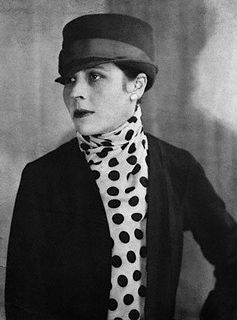A Quote by Emma Goldman
The State has no more existence than gods and devils have. They are equally the reflex and creation of man, for man, the individual, is the only reality. The State is but the shadow of man, the shadow of his opaqueness, of his ignorance and fear.
Related Quotes
It is the same for all men. None of us can escape this shadow of the father, even if that shadow fills us with fear, even if it has no name or face. To be worthy of that man, to prove something to that man, to exorcise the memory of that man from every corner of our life--however it affects us, the shadow of that man cannot be denied.
The disappointed man turns his thoughts toward a state of existence where his wiser desires may be fixed with the certainty of faith; the successful man feels that the objects which he has ardently pursued fail to satisfy the cravings of an immortal spirit; the wicked man turneth away from his wickedness, that he may save his soul alive.
There was a man that hated his footprints and his shadow, so one day he thought that if he ran fast enough, his footprints and shadow would not be able to follow him and then he never ever had to look at them again. He ran and he ran as fast as he could, but the shadow and the footprints had no problems keeping up to him. And he ran even faster and all of a sudden he fell dead to the ground. But if he been standing still there hadn't been any footprints and if he had been resting under a tree his shadow had been swallowed of the trees shadow.
It is not a struggle merely of economic theories, or forms of government or of military power. At issue is the true nature of man. Either man is the creature whom the psalmist described as a little lower than the angels ... or man is a soulless, animated machine to be enslaved, used and consumed by the state for its own glorification. It is, therefore, a struggle which goes to the roots of the human spirit, and its shadow falls across the long sweep of man's destiny.
To repress rebellion is to maintain the status quo, a condition which binds the mortal creature in a state of intellectual or physical slavery. But it is impossible to chain man merely by slaving his body; the mind also must be held, and to accomplish this, fear is the accepted weapon. The common man must fear life, fear death, fear God, fear the Devil, and fear most the overlords, the keepers of his destiny.
Jung first gave us the term ‘shadow’ to refer to those parts of our personality that have been rejected out of fear, ignorance, shame, or lack of love. His basic notion of the shadow was simple: ‘the shadow is the person you would rather not be.’ He believed that integrating the shadow would have a profound impact, enabling us to rediscover a deeper source of our own spiritual life. ‘To do this,’ Jung said, ‘we are obliged to struggle with evil, confront the shadow, to integrate the devil. There is no other choice.’





































